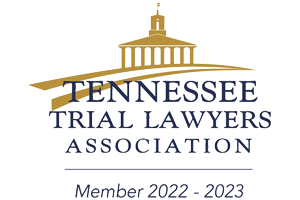- Contact Us Now: (615) 490-6020 Tap Here to Call Us
How Tennessee’s New Laws Affect You: Domestic Violence, Distracted Driving, and More

When Nashville’s Music Note dropped on Broadway it not only marked the start of the new year in Tennessee, but also triggered several new laws for the State’s residents to be aware of. The following list aims to identify the relevant portions of many laws passed by the Tennessee 113th General Assembly that went into effect January 1, 2024.
“Abrial’s law, the Keeping Children Safe from Family Violence Act” – (SB0722)
“Abrial’s law” makes important changes to custody proceedings involving alleged domestic violence or child abuse. Under the law, a parent involved in a child custody proceeding will not be penalized for “making a good faith complaint about domestic violence or child abuse.” Additionally, the court is now prohibited from removing a child from a parent during a child custody proceeding involving allegations of abuse if the parent is competent, protective of the child, not physically or sexually abusive, and the individual to whom the child is bonded or attached.
Moreover, expert evidence is now only admissible when an expert demonstrates both expertise and clinical experience working with victims of domestic violence or child abuse that is not solely forensic in nature. The court may also consider evidence of past or sexual abuse committed by the accused parent, as well as other relevant and admissible evidence against the accused parent such as past or current orders of protection, and arrests and convictions for domestic violence, sexual violence, or child abuse.
In considering the evidence, the court must apply current, valid, evidence-based, scientific, and peer-reviewed research regarding the types of alleged abuse to inform their decision. Practices or approaches that are not scientifically based or are not an accepted practice in the specialized field of domestic violence or child abuse are not permitted.
The law also makes changes to the procedure of child custody proceedings involving allegations of domestic violence or child abuse. Now, the court must conduct an evidentiary hearing to determine whether the accused parent has engaged in a pattern of abuse before appointing a guardian ad litem, evaluator, or other neutral professional. During the evidentiary hearing, if the court finds probable cause of abuse, then the court must award the other “safe” parent full custody. If the court awards visitation to the abusive parent, then the visitation must be supervised by a professional. Notably, if the court does not find probable cause for abuse at the preliminary evidentiary hearing, it does not preclude the consideration of additional evidence of domestic violence or child abuse later in the proceedings.
Additionally, the court is prohibited from ordering a reunification treatment in a custody proceeding unless there is scientific and valid proof of the safety, effectiveness, and therapeutic value of the reunification treatment. The court is likewise prohibited from ordering a reunification treatment meant to “cut off” a child from their bonded parent.
Similarly, in situations where a court issues an order to remediate the resistance of a child refusing contact with an accused abusive parent, the order must primarily address the behavior and contributions of the parent to the child’s refusal. In other words, the order must first describe the actions of the accused parent that led to the child refusing contact before ordering that steps be taken to improve the child’s relationship with the accused parent.
Finally, the law requires all court personnel involved in child custody proceedings to now complete at least twenty (20) hours of domestic violence and abuse training, and at least fifteen (10) hours of additional training every five (5) years. This includes judges, judicial commissioners, and magistrates, and any court-appointed professional who provides an opinion regarding abuse, trauma, or the behaviors or victims and perpetrators of abuse. The training program will be developed by the administrative office of the courts and will be designed to improve the courts’ ability to recognize and respond to domestic violence and child abuse in all family victims, particularly children. The goal of the training program is to assist the court in making appropriate custody decisions that prioritize the safety and well being of the children involved.
The Eddie Conrad Act Increases the Punishment for Distracted Driving – (SB0589)
The Eddie Conrad Act amends Tennessee’s preexisting Hands Free Law by imposing harsher penalties on minor drivers caught using a cell phone behind the wheel. Now, teenagers under the age of eighteen (18) who receive a second or subsequent distracted driving violation will have seven (7) points added to their driving record. According to the Tennessee Department of Safety & Homeland Security, seven (7) points is enough for a minor driver to potentially have their license suspended and placed in the Driver Improvement Program. Adult divers over the age of eighteen (18) are not affected by the amendment and will not receive additional points on their driving records for distracted driving violations.
The James ‘Dustin” Samples Act Supports Firefighters – (SB0856)
This law creates a presumption of injury in the line of duty when firefighters are diagnosed with post-traumatic stress disorder (PTSD) by a mental health professional after being involved in one of the following four (4) scenarios:
- Directly witnessing the death of a minor, or treating the injury of a minor, who subsequently died before or upon arrival at a hospital emergency department;
- Directly witnessing an individual whose death involved a serious bodily injury of a nature that shocks the conscious;
- Responding to an event where there was a victim with a serious bodily injury that shocks the conscious; or
- Responding to an event where a responder, co-worker of a responder, or a family member of a responder sustained a serious bodily injury or died.
The presumption of injury that is created when firefighters are diagnosed with PTSD from these incidents is now compensable under Tennessee’s Workers’ Compensation Law, absence a showing that the diagnosis is due to non-service connected risk factors or exposure. As such, any mental health conditions resulting from standard work-related actions, including warranted disciplinary action, work evaluations, job transfers, layoffs, or demotions, are not considered compensable injuries under this law. Moreover, the PTSD diagnosis must be made within one (1) year of the final date of employment with the fire department to trigger compensation eligibility.
Providing workers’ compensation is expensive for employers, and the law addresses the added expense by requiring the State’s Department of Labor and Workforce Development to establish and administer a grant program to mitigate the costs. The grant program will be implemented by the Department’s existing staff and administered pursuant to rules promulgated by the Department. Said rules must award grants to both employers and their workers compensation benefits provider if certain requirements verified by the state fire marshal’s office are met. Individuals administering the grant program will ensure that funding is provided from whatever sources are available.
To qualify for the grant program, employers must provide mental health awareness training to firefighters that meets the requisite standards laid out by the Department. Firefighters who receive the training will receive the appropriate continuing education credits from the employer.
Licenses Needed at the Farmers Market – (SB1049)
Food vendors at the farmers market are now required to obtain a unit permit from the Tennessee Department of Health under the preexisting Tennessee Food Safety Act. Qualified applicants must pay a $300.00 permit fee and successfully complete a pre-operational inspection at the local health department that ensures compliance with the rules for food service establishments.
Those interested in applying for a farmers market food unit permit should be aware of the following new regulations:
- A unit must not operate in conjunction with an organized temporary event, unless a temporary food service establishment permit is obtained for the event;
- Suspension of permits under the Tennessee Food Safety Act apply only to farmers market food units; and
- An operator of a unit is not required to disassemble or remove the equipment used in the operation of the unit from the farmers market premises at the end of an operational day. However, the farmers market itself may still impose rules for removal of equipment.
The law does not prohibit an individual from being issued a farmers market food unit permit and a temporary food service establishment permit for the same establishment simultaneously. In the case an individual does receive both permits and chooses to operate under the temporary food service permit, then they are required to follow the temporary permit regulations. Additionally, a physical copy of the food market service permit must be present in the food unit at all times during operation.
Notably, individuals operating a farmers market food unit are not required to obtain a permit to offer food samples if they comply with the following standards:
- Samples must be prepared on clean surfaces;
- Food must be in good condition, free from spoilage, filth, or other contamination;
- Food must be honestly presented and safe for human consumption;
- Produce that has already been cut should be discarded after two (2) hours;
- The persons preparing the samples must wash their hands frequently or use disposable gloves;
- A barrier must be maintained between hands and food, such as a toothpick or tongs; and
- Plastic glass coverings must be used to protect open food products from contamination.
Rewriting the County Line – (SB0125)
This law establishes a new boundary line between Shelby County and Fayette County in western Tennessee.
Adding GPS to Ignition Interlock Devices – (SB0258)
Ignition interlock devices installed on or after January 1, 2024, are required to have global positioning system (GPS) technology. GPS technology geotags the vehicle’s location at the time of interlock installation, during one random retest, if a skipped test occurs, or when circumvention of the device is detected. It is not used to continuously track a vehicle.
Reimbursement for Handgun Safety Courses – (SB0360)
The Tennessee Department of Safety is now authorized to utilize a portion of the State’s $100.00 enhanced handgun carry permit and processing fees to reimburse individuals who complete an approved handgun safety course for the first time. Individuals who complete the course on or after January 1, 2024, will have the costs of taking the course offset by a reimbursement of up to $30.00.
This law further requires the Department of Safety to coordinate with the Tennessee Bureau of Investigation to supply information regarding the approved handgun safety training courses that are available in the State. This information will be reported annually to licensed federal firearms dealers in Tennessee and provided at a minimal cost on the Department of Safety website.
State residents will be made aware of the reimbursement program and available safety training through signage displayed by licensed firearm deals pursuant to the new law. Importantly, this law is only in effect until January 1, 2025, unless extended, so those wishing to take advantage of the program only have one (1) year to do so.
Helping Juvenile Offenders – (HB1120)
Chaplain services are now made regularly available by the Tennessee Department of Child Services to juveniles housed in a youth development center, instead of to those housed in a state-licensed juvenile detention facility.
Additionally, juvenile offenders aged sixteen (16) and older who are determinately committed to a hardware secure residential facility or a youth development center are now required to be housed separately from those younger than age sixteen (16). This separation requirement is bypassed, however, if it is deemed necessary for the safety and well-being of children younger than sixteen (16) to be housed with an older juvenile or in order to comply with current law regarding the use of seclusion at juvenile detention facilities.
Waiving the Knowledge Test for Service Members – (SB0105)
The Tennessee Department of Safety will now waive the knowledge test and accept alternative requirements for certain service members applying for temporary commercial learner’s permits. An applicant wishing to have the knowledge test waived must certify:
- That they are or were, during the year immediately before the date of the application, regularly employed and designated as a motor transport operator – 88M (Army); a PATRIOT launching station operator – 14T (Army); a fueler – 92F (Army) and 2F0 (Air Force); a vehicle operator – 2T1 (Air Force); a pavement and construction equipment operator – 3E2 (Air Force); a motor vehicle operator – 3531 (Marine Corps); or an equipment operator – E.O. (Navy); and
- That they were or are operating a motor vehicle in the United States armed forces that is representative of the license for which the service member is applying. In the case of honorably discharged members, they must certify they were operating said motor vehicle for at least one (1) year immediately preceding the date of separation or discharge from the armed forces. In the case of an active-duty service member, they must certify they were operating said motor vehicle for at least (1) year before the date of application.
Additionally, an applicant must certify that for the one (1) year period immediately preceding the date of application:
- That they have not had more than one driver license, except for a valid military commercial driver license;
- That they have not had any convictions while operating any type of motor vehicle, and likewise have not lost the privilege to operate a commercial motor vehicle or been disqualified from operating a motor vehicle in any State;
- That they have not had more than one conviction for serious traffic violations while operating any type of motor vehicle, as defined by Tennessee state law or by federal regulations;
- That they have not had a conviction for a violation of any military law, state law, or local ordinance relating to motor vehicle traffic control in any state, other than a parking violation or arising in connection with a traffic accident; and
- That they have no record of an accident in which they were at fault.
Finally, the following documentation must be submitted along with the application:
- Military orders or other acceptable documentation that establishes the applicant’s military occupational specialty and current duty station assignment, and if the applicant is on active duty, a valid military identification card.
- If the applicant was honorably discharged, the applicant’s certificate of release or discharge, the applicant’s DD 214 form that shows dates of service and confirms the applicant was honorably discharged, the applicants AGO Form 53-55 or NAVPERS 553 showing dates of service, or the applicant’s official NAVPERS-660 form that confirms the honorable discharge.
An applicant who is approved for a knowledge test waiver must successfully complete the requisite vision and skills tests and pay the appropriate fees other than the skills testing fee. This law applies to members of the national guard and armed forces, but not to a United States reserve technician.
Written by Madeleine Lamb
















